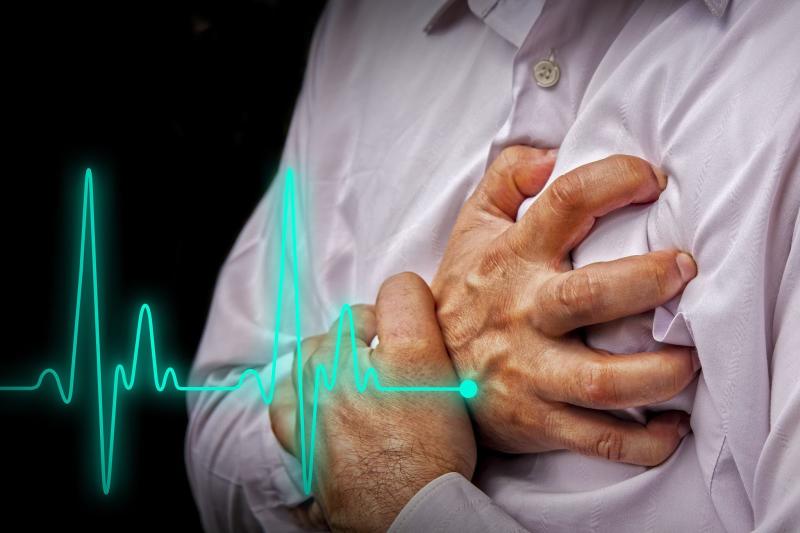
Myocardial infarction (MI) occurs frequently among patients with refractory out-of-hospital cardiac arrest (OHCA) receiving extracorporeal cardiopulmonary resuscitation (ECPR), a recent study has found.
Accessing a retrospective registry, researchers enrolled 252 patients (mean age, 59 years) who were given ECPR. The mean duration of venoarterial-extracorporeal membrane oxygenation (ECMO) was 131 hours, with a mean ECMO flow rate of 3.61 per minute after 24 hours.
Overall, 29 percent of the participants survived to hospital discharge and 75 percent underwent coronary angiography. MI type 1 was detected in 63 percent of the OCHA participants, a slightly greater prevalence rate than in their in-hospital cardiac arrest (IHCA) comparators (55 percent). The difference was not statistically significant.
MI type 2, defined as nonoccluded by severely stenosed coronary arteries, was diagnosed in less than 5 percent of the total sample. Similarly, no prevalence difference was reported between OHCA and IHCA.
Patients who developed MI type 1 had a survival outlook comparable to the overall cohort. In comparison, those with MI type 2 had a nominally worse survival rate (17 percent), but not significantly so (p=0.513). The researchers noted that this may partly be due to the smaller number of patients with MI type 2.
“Two-thirds of patients with refractory OHCA receiving ECPR had MI type 1 or 2 warranting immediate revascularization to salvage viable myocardium,” they said. “Considering that ECPR long-term survivors have a favourable neurological outcome, minimizing myocardial scarring and preventing subsequent heart failure appear of paramount importance.”